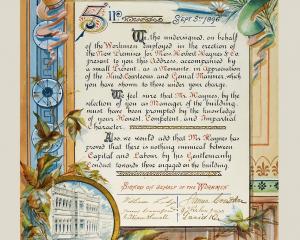
• Actually get a will. It is one of the most important documents you will ever complete in your life. It shows you care for those who will be left behind and that in a difficult time you wish to make it as easy for them as you possibly can. The extra cost and stress from not having a will is far greater than what you would think.
• Don't just assume that your family knows how you want your assets to be distributed. A will is a clear record of exactly what you want to happen. It is amazing how many people would say after someone's death that they know exactly what the deceased wanted to happen, yet all their opinions are very different. When combined with grief, this can really strain relationships and can cause substantial rifts that sometimes never get repaired. A well-written will goes a long way to preventing this.
• Once you've made your will, share the details with friends and family. Explaining your preference for distributing your estate can dramatically lessen the chances of misunderstandings or disagreements when the time comes to actually read your will. It is better for the important people in your life to hear this directly from you rather than someone else.
• Get expert advice. Be aware that wills can be challenged and that there are moral duties under the law associated with settling your estate. Having a good understanding of all the ins and outs means you can make informed decisions regarding your assets and family members, and have a clear understanding of the consequences of those decisions.
• Think about your will on a regular basis. Check to see if you need to update it; particularly after any change in life circumstance, such as a new relationship, a new child or the acquisition of a valuable asset.












